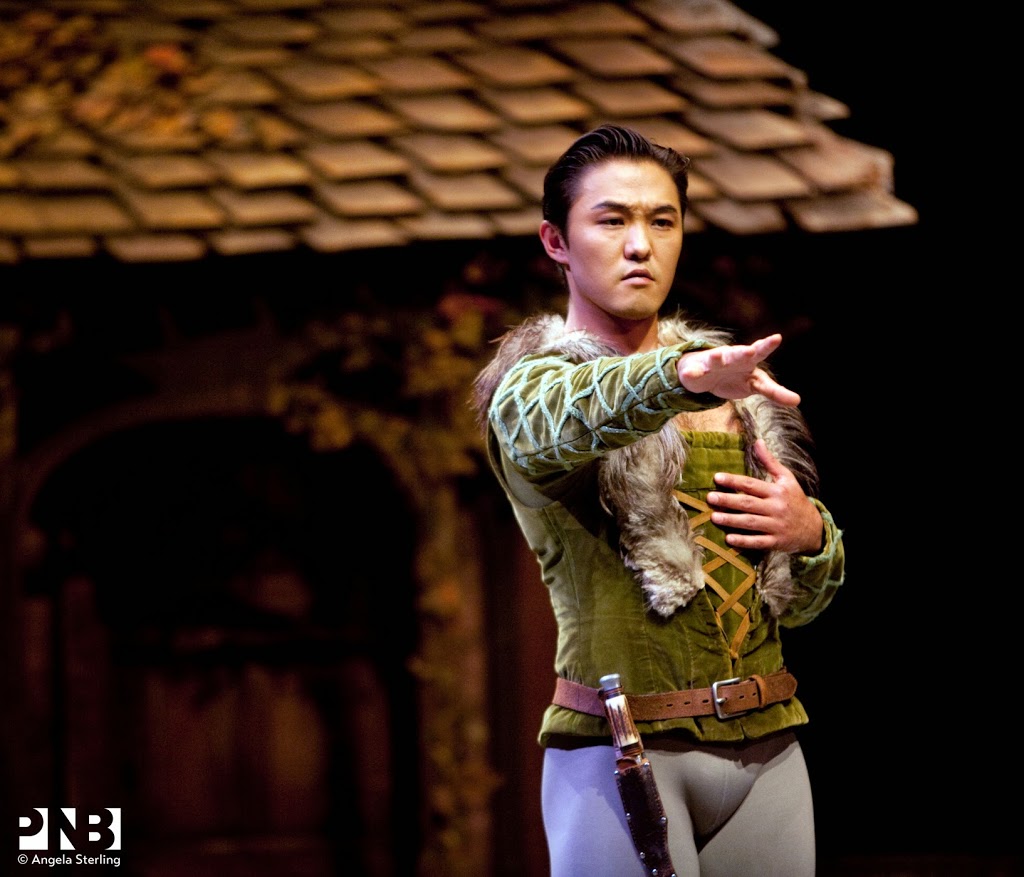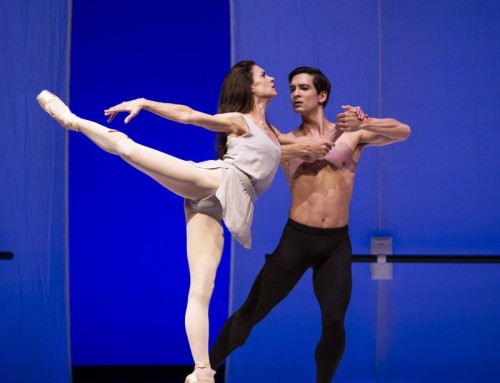As the curtain rises on a picturesque scene in a small German village, vinegatherers depart for the harvest. Hilarion the gamekeeper arrives, hoping to see the lovely Giselle. He hides when his rival Albrecht—really a Duke disguised as a peasant named Loys—emerges from his cottage, with his squire Wilfride. Wilfride begs his master not to pursue Giselle, but Albrecht ignores this advice and sends Wilfride away. Albrecht knocks on Giselle’s door; she comes out of her cottage and the two of them delightedly talk and dance together. As they embrace, Hilarion, unable to restrain himself any longer, runs up to Giselle and reproaches her conduct. Giselle reacts disdainfully, and Albrecht warns him to cease his amorous pursuit of Giselle. Angrily, Hilarion departs.

A troupe of young vinegatherers comes to fetch Giselle, for duty calls—the grapes must be harvested. Giselle, passionately fond of dancing and diversion, talks them into postponing work and dancing instead. Everyone joins together in a merry German waltz. The carefree scene is interrupted by Giselle’s mother Berthe, who comes out of their cottage to upbraid her daughter: You are always dancing instead of working! What’s more, Berthe says, your health is fragile, and if you dance too much, you could die. As the village girls gather around, Berthe tells the frightening tale of the Wilis—ghosts of dead brides-to-be who never reached their wedding day—who rise from their graves at night to kill any men who happen by. The village girls are terrified by this story; Giselle alone is unfazed and laughs it off.
The fanfares of the hunt are heard in the distance. Albrecht is worried by this sound, and he quickly hurries the peasant girls away and departs the scene himself. Hilarion, now alone, furtively gains entry to Albrecht’s cottage in an attempt to find out his rival’s true identity. Soon the noble hunting party, including the magnificently dressed Prince and his daughter Bathilde, arrive in the village, hoping to find a favorable spot for repose and refreshments during the heat of the day. Berthe and Giselle happily oblige. Bathilde finds Giselle charming and engages her in conversation, asking about her work and her pastimes, and asking if she has a sweetheart.

Now it is time for the harvest festival. A wagon decorated with flowers comes into view and little Bacchus is carried triumphally astride a cask in keeping with an old country tradition. Giselle dances with Albrecht, surrounded by the entire village. The happy scene ends with a kiss that Albrecht bestows on Giselle.The Prince sends his retinue back to the hunt, informing them that he will summon them with his horn later. After all is quiet, Hilarion emerges from his rival’s cottage holding a nobleman’s sword: he has figured out that his rival is a great lord; a seducer in disguise! He hides the sword, waiting for the right moment to expose the truth about Albrecht.
At this sight, the fury of the jealous Hilarion knows no bounds. He throws himself into the middle of the crowd and declares Albrecht to be a nobleman in disguise. Giselle responds with disbelief. But Hilarion produces Albrecht’s sword for all to see. He then seizes the horn and blows it forcefully, summoning the entire hunting party, which comes rushing in. The nobles recognize Duke Albrecht and overwhelm him with salutations and deference.

Giselle can no longer doubt Albrecht’s deception. She is devastated, and goes mad. She recalls her happy times with Albrecht, seizes his sword, and nearly kills herself before he grabs it away. Life seems to abandon her; her mother takes her in her arms, and moments later, Giselle dies. Albrecht tries to revive her, but sees that her heart has ceased to beat. He is consumed with despair as the peasants and noblemen gather sorrowfully around Giselle’s lifeless body.
Featured photo: Principal dancer Kaori Nakamura with Lucien Postlewaite in Giselle. Photo: Angela Sterling.





